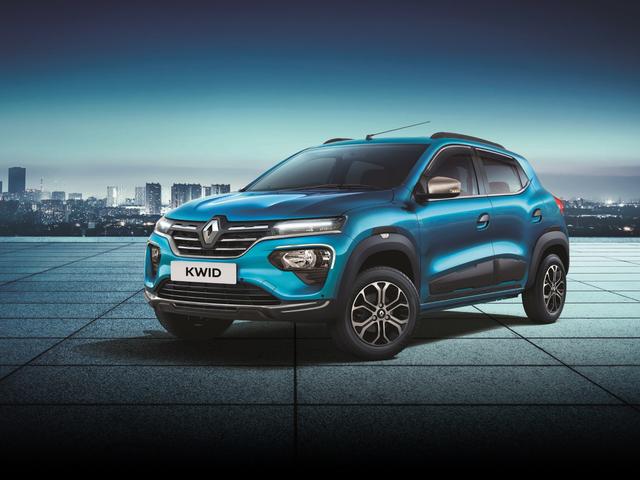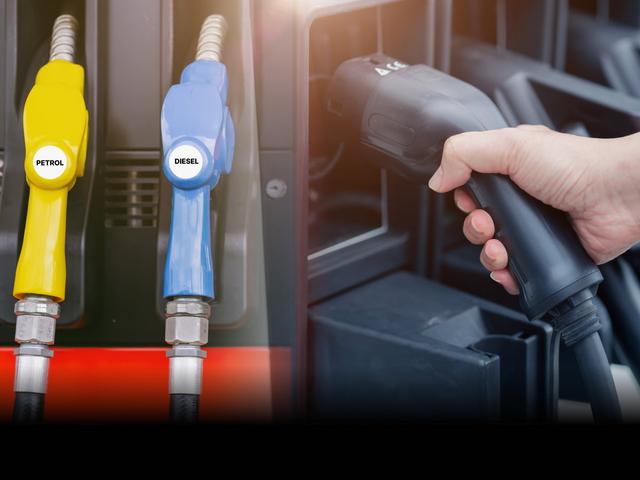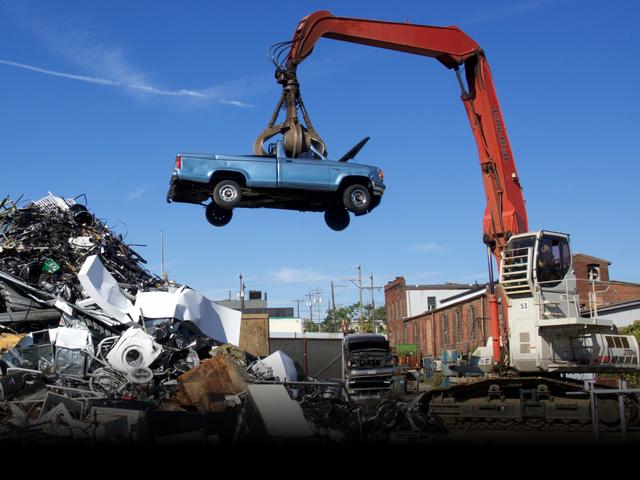Buying a used car in India can seem like a troublesome task for first-time buyers. There are doubts over which used car to buy, where and whom to buy a used car from — direct from the owner, or through a dealer. The biggest fear most people have is buying a used car that has issues that could lead to expensive repairs. These could be caused by regular wear and tear, or worse, by a previous accident. If you know how to check the accident history of a vehicle in India, the process of buying a used car seems a lot more straightforward.
Of course, you could just use CARS24 to help you choose the right used car, and be assured you’re buying from a trusted source. All the vehicles exhibited for sale are carefully picked, thoroughly inspected across 140+ parameters and only then listed for sale. Learning how to do your due diligence helps though, even if just to be aware. This is why it’s beneficial to know how to check the accident history of a vehicle in India as per our guide. It will give you the answers to any questions you may have about what an accidental vehicle is, why you should check the accident history of a car and where to check it.
Sign up with the CARS24 official auto community CLUTCH, where you can be part of discussions and more.
What is an accidental vehicle?
Simply put, any vehicle that has met with an accident at some point in its lifetime is an accidental vehicle. The vehicle could have met with one or many accidents, affecting the structural integrity of the vehicle or its mechanicals. It even could have been in a minor fender bender with cosmetic damage.
With that being said, accidents while driving are not uncommon in India. Given our road infrastructure, the density of traffic and the general aversion of many motorists towards following traffic rules, accidents are hard to avoid even with the best driving tips at hand. Usually, the speed at which an accident occurs, whether between one vehicle and an obstacle, or two or more vehicles, dictates the severity of damage.
The extent of accidental damage can also be influenced by factors such as the size and build quality of the vehicles involved. A slow-speed accident involving a small car, like a hatchback, and a larger vehicle, such as an SUV, could still result in substantial damage to the car, with only a little damage to the SUV.
After an insured vehicle is in an accident, the insurance company will assess the damage to the vehicle and decide the next course of action. If the extent of the damage is minor, the vehicle will be considered salvageable.
Conversely, if major damage has been incurred and the cost of repairs exceeds the insured declared value of the vehicle, the insurance company will declare the vehicle a total loss.
When an accidental vehicle is declared a total loss, the insurance company pays out a fair market value to the owner and takes possession of the damaged vehicle. The vehicle is then sent to a scrapyard, which then decides if the vehicle can be restored, or whether it needs to be scrapped.
Things can get complicated when an accidental vehicle is repaired and refurbished to be sold onwards. If the repairs are not carried out to a certain standard using genuine spare parts, the car may be unsafe to be driven on public roads. Damaged parts could lead to premature failures as they become the vehicle’s weakest link. An improperly repaired accidental car is either a ticking time bomb or another accident waiting to happen.
How to check car accident history?
There are plenty of unethical practices in the used car market to look out for. These range from tampering with odometers to trying to pass off an accidental vehicle as a non-accidental vehicle. Fortunately, when you’re armed with the right information on how to check a car’s history, it will be much harder to get caught unaware. Here are some steps one should follow for every used car purchase to find out if a car has an accident history.
Inspect the vehicle
Thoroughly inspect the vehicle’s exteriors for signs of accidental damage and repair. What you’re looking for are any changes to the car’s appearance not in line with how it would have left the factory. Even better, take a trusted mechanic or car expert along with you for the inspection.
.jpg)
Inspect the paint job
If a body panel has been repainted to cover up a fender bender, or more damage, there may be a difference in the paint versus the other panels. The colour and finish on a repaired panel seldom fully matches the factory paint job. Even if there’s no difference in colour, a dead giveaway of a repainted panel is ‘orange peel’, or dimples in the paint finish under the clear coat. Also check for paint overspray at the joints of panels, under the bonnet and inside the boot.
.jpg)
Inspect panel gaps
When body panels are damaged, they are either repaired or replaced. It’s very possible for the panels or body line to not match. Inconsistent gaps between panels are a sign of a repair job, misaligned panels are a sign of a poor repair job.
.jpg)
Inspect the underbody
Take a look under the car, where the chances of spotting a repair job are higher simply because most repairs will be done with less care and effort here. What you’re looking for are any signs of repairs or replacement: places where the chassis has been welded, or hammered back into alignment. Look out for creases in the metal where paint has chipped off/rust has formed or any new parts that look out of place with the car’s age and mileage.
Examine all the glass areas
Check the windshield, rear windshield and windows for cracks and that they all carry the same manufacturer or vendor markings/serial numbers. Any differences could suggest that they have been replaced.
Check the car’s badges
Repainted cars will often have the badges taken off for a repaint of the full panel. Repaired panels may have badges that are newer and shinier than the other badges on the car, or not in their correct position, or even not present at all. Take this as a sign to ask more questions.
Ask the owner, simple
It may sound too simple but if you’re buying the car directly from an owner, ask if the car has ever been involved in an accident. If it has, you can even ask the owner what parts were damaged, what parts were replaced, whether there was chassis damage, which panels have been repainted and so on.
Cross-check the Vehicle Identification Number
Make sure the vehicle’s VIN and engine number mentioned on the registration documents are the same as what are present on the car. The VIN is usually stamped onto a panel in the engine bay, while the engine number is engraved into the engine block itself.
Examine service records
Armed with the VIN of a vehicle, check the service records of the car if sent to an authorised service centre. Even if the car was serviced by third-party mechanics outside of its warranty, it is sometimes possible to check directly with the company service centres for the history of a car. Keep an eye out for replacement of parts and at what mileage they were replaced at. Early or untimely replacement of certain mechanical and cosmetic components (such as engine parts or headlights/tail lights) could indicate that the car was involved in an accident.
Check with previous/current insurance agencies of the vehicle
It is also good practice to check with the insurance agencies listed in the history of the car whether any claims have been made against the issued policies. A major claim is a good indication of an accidental car.
Why should you check the accident history of a vehicle?
To avoid any surprises in the ownership period of your new second hand car, it’s better to prepare yourself with the history of the car. The history of a vehicle can and will influence its safety and functionality over its lifetime. An accidental car can even work out more expensive in the long run, requiring untimely repairs to fix faults previously present.
Safety
Any accidental vehicle that has suffered a large impact would be compromised in terms of safety. It could be structurally, at the safety systems level (airbags, electronics etc), or even at the component level (bent suspension components). This could lead the vehicle to drive in unpredictable ways.
Higher insurance premiums
Accidental vehicles usually come with the caveat of higher insurance premiums, so be prepared to spend more annually to keep your car insured.
High maintenance costs
There are higher chances of something going wrong with an accidental car, even if no issue presents itself at the time of inspecting and buying.
Resale value
Accidental vehicles, when repaired at authorised service centres, may have a better reputation in the market. Even when repaired skilfully, accidental vehicles experience a drop in value. If you are mindful of these conditions, an accidental vehicle’s history can be used as a powerful bargaining tool. Just as long as you know that a vehicle’s accident history stays with it, affecting resale value right down the line.
Where to check the accident history record?
As India has no legal requirements for a seller to disclose if a car has accidental history to a buyer, the responsibility rests squarely with the buyer itself. As such, it’s best to take due diligence in this matter and dig as deep into a car’s history as feasible before purchase.
Authorised service centre
The ASC is a good place to start when it comes to unearthing the history of a car, including its accidental history, if any. Most owners service their cars at the authorised service centre during the warranty period, so if a car misses a service, it’s a sign something is not right. Ask for service records and look for any unusual bills or repairs.
Insurance companies
As previously stated, the insurance company that issued the current or previous policy on the car is a good source of information on a car’s history. Any major claims are a sign of accidental damage being covered up.
Conclusion
While there is an exhaustive list of checks to be made to be sure of a vehicle’s accident history, a lot of these rules apply to any pre-owned car. There is a way to save time and effort in this process, though.
CARS24 offers a Car History Report that covers the service history of a car, its accident history, replacement of parts history and more. It’s a safe and easy way to buy a pre-owned car with confidence. Of course, the easier solution still is to browse through CARS24’s inventory of pre-owned cars and be assured of a seamless experience throughout.
FAQs
Q. How do I obtain the vehicle registration number in India?
A vehicle’s registration number is obtained after inspection by the Regional Transport Office (RTO) that is local to the owner’s permanent address.
Q. Can I check the accident history of a vehicle in India on any RTO website?
No, currently it is not possible to view the accident history of a vehicle in India on any RTO website.
Is it possible to check the accident history of a vehicle on private websites in India?
It is possible to check the accident history of a vehicle on private websites in India. CARS24 offers this service to interested customers.
Q. Is it mandatory to disclose accident history when selling a vehicle in India?
No, it is not legally mandatory to disclose accident history when selling a vehicle in India.
Q. What is the importance of checking a vehicle's accident history?
A vehicle’s accident history is important as it allows the buyer to be prepared for any potential issues - safety, mechanical, insurance-related and more.
Q. What information do I need to check a vehicle’s accident history online?
One only needs a vehicle’s registration number to check its accident history online.
Q. How does accident history affect the value of a vehicle?
The accident history affects the value of a vehicle negatively because of the associated costs and potential risk of purchasing an accidental vehicle.















.jpg&w=828&q=75)



















.jpg&w=640&q=75)
